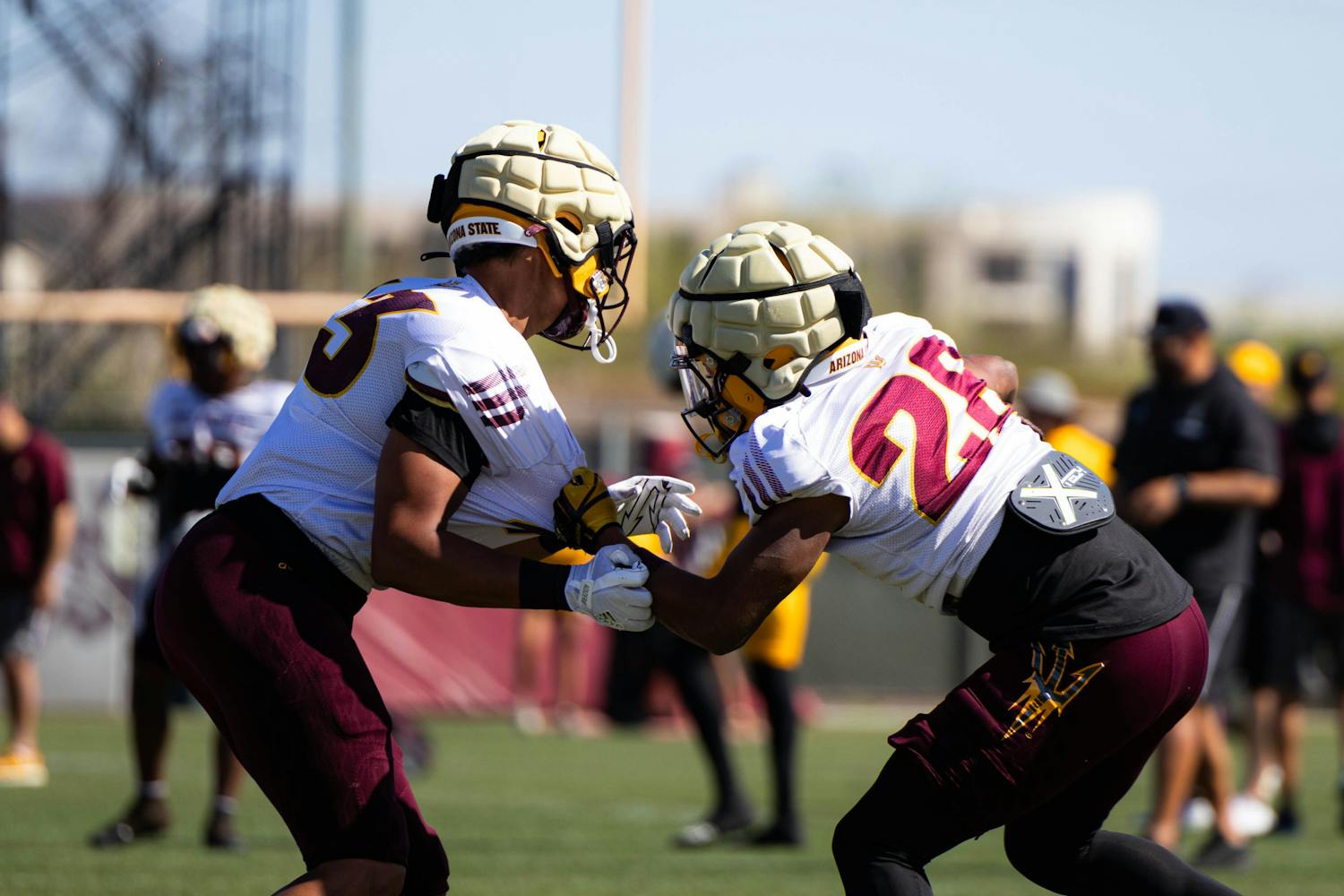Two recent cases of false reporting involving University students have wasted time and resources, according to ASU Police.
On Oct. 30, a 22-year-old woman told police she was robbed in the basement of the Business Administration C-Wing, and that an unknown man ran off with her iPhone, according to an ASU police report.
She provided police with a description of the man’s clothes and told police he had shoved her against a wall before stealing her cell phone. There were no witnesses.
After nearly two weeks of investigating, watching video surveillance and alerting the community, police found out that the woman had made up the incident.
Assistant Chief of Police Jim Hardina said the evidence was inconsistent with what the woman told police.
“Surveillance showed her talking on her phone before leaving the scene,” Hardina said.
In Arizona, false reporting is a Class 1 misdemeanor and can potentially result in jail time, Hardina said.
Students arrested on suspicion of false reporting must also meet with the Office of Student Rights and Responsibilities for code of conduct violations.
A falsely reported case results in greater consequences for the police department and officers involved.
“ASU must expend resources to a crime that never happened and prevents officers from focusing on real problems,” Hardina said, “(False reporting) also hurts the community, as they become panicked and upset.”
Another student was arrested last week on suspicion of false reporting from a claim he made on Oct. 27.
The student told police he was robbed in the Rural Road Parking Structure, Hardina said in email.
Reports show this to be the third case of false reporting since November 2011.
“Most students (at the University) don’t make false reports, but when they do, it has just created a whole new set of problems,” Hardina said.
Sandra Day O’Connor College of Law professor Andrew Carter said false reporting is a fictitious statement to any law enforcement.
“False claims have an impact on police,” he said. “They are solving crimes that aren’t crimes.”
Carter said false reporting could be a very easy case to pursue, depending on how police allocate their resources.
“If there’s no evidence, how far will police go based on a suspicious claim of a lost phone?” he said.
Hardina, who has visited these cases before, said a common reason for falsely reporting a robbery is that students wanting to avoid consequences.
Students might also lie because of their parents, he said.
Hardina said he observed a case where a student lost his wallet and phone in Lot 59 but claimed that they were stolen so his parents might buy him a new one.
Students also give false accusations with the intention of making an insurance claim.
“False statements and insurance claims often go together, or to throw authorities off their trail,” Carter said.
Social and behavioral sciences sophomore Ariel Peters said students give false reports because it’s an easy way to avoid trouble.
“Depending on the situation, students might report (crimes) inaccurately to dodge the blame on themselves or their friends,” Peters said.
Robbery is considered a serious crime on campus, and it’s harder to prove a crime that never happened.
“The cons certainly outweigh the pros when it comes to lying to the police,” Peters said. “I’d rather deal with the consequences of a lost phone than the consequences of a misdemeanor.”
Reach the reporter at mkthomp5@asu.edu



